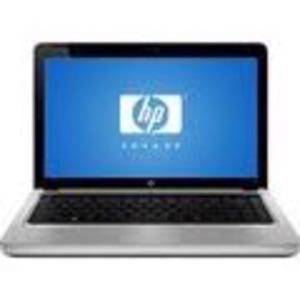Remember when computers were cool and printers were boring peripherals? Well, these days there seems to be fewer and fewer differences between the two devices.

At least HP seems to think so. Reports are circulating today that the hardware giant plans to combine its not-all-that-profitable PC division (you know, the one the company’s last CEO wanted to spin off) with its high-margin, market-leading printer operation.
According to the reports, HP CEO Meg Whitman plans to combine the Imaging and Printing Group (IPG) with the Personal Systems Group (PSG) under the current head of the PSG Todd Bradley. The longtime head of the IPG, Vyomesh (VJ) Joshi, would leave the company. Together, the two groups amassed sales of $65 billion last year, more than half of HP’s total, with a combined profit of $6.3 billion.
This is clearly a big deal for HP, radically simplifying and reworking the company’s structure. But it’s also a bellwether of the continued devaluation of the personal computer amidst the rise of smartphones, tablets, and cloud computing.
There’s nothing wrong with trying to cut costs by combining units that serve a similar customer base. And I’m sure HP means no disrespect to the PC. It’s just that once upon a time, PCs were considered innovative, even sexy devices. Many people eagerly awaited the new models promising faster speeds and new capabilities.
Those days are gone. In today’s brave new world, the generic PC is just as much of a commodity as an inkjet printer, only without the saving grace of overpriced ink to boost profits. There’s little to separate one offering from another. With a couple of exceptions, it’s increasingly difficult to separate one company’s products from the competitor’s.
Heck, there are more differences and innovation among printers these days. At least they look different from one another. (And, of course, printers face their own challenges as people increasingly view their images and documents on screens of all sizes instead of printing them out.)
I experienced the demise of the PC as a center of innovation firsthand just last week when I bought an inexpensive HP laptop for use here at ReadWriteWeb. While it does its job perfectly well at half the cost of a MacBook Pro, it’s earned me nothing but snickers from my new colleagues.
That is not a good sign for HP or other “generic” PC makers. We’re getting perilously close to the point where buying a new PC — or a new printer — is about the same as getting a new blender. Combining HP’s printer and PC divisions isn’t going to delay that day.

















